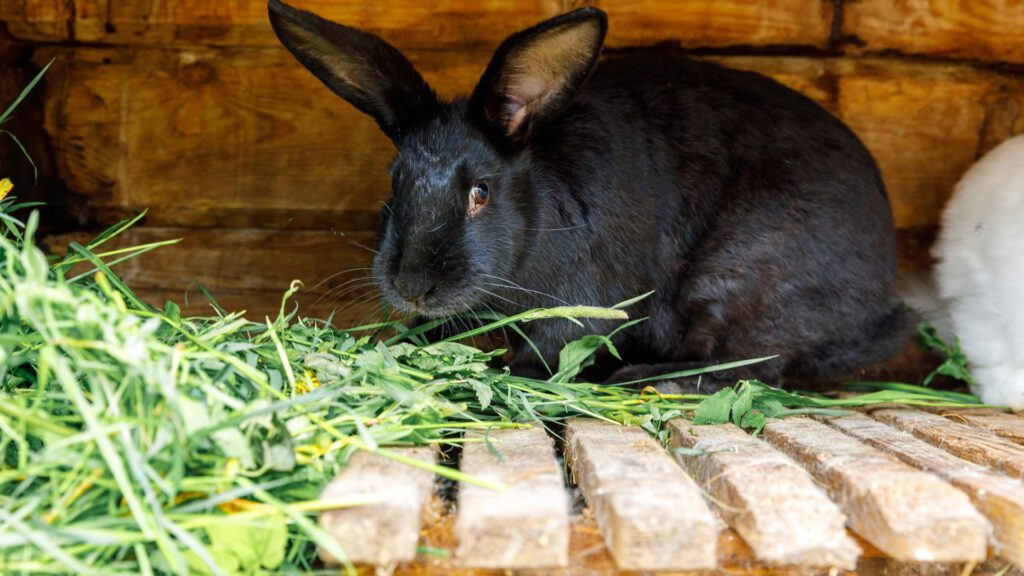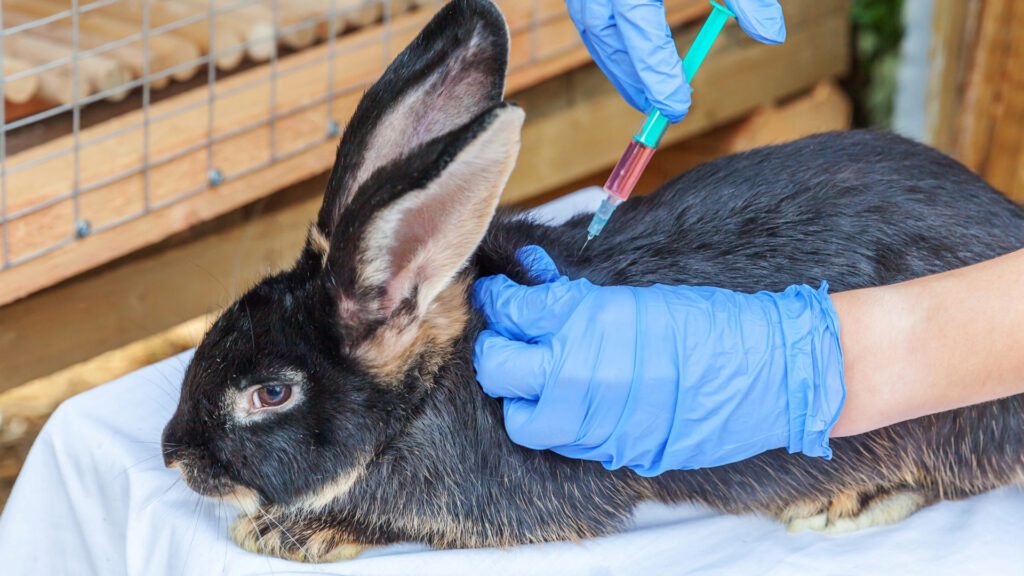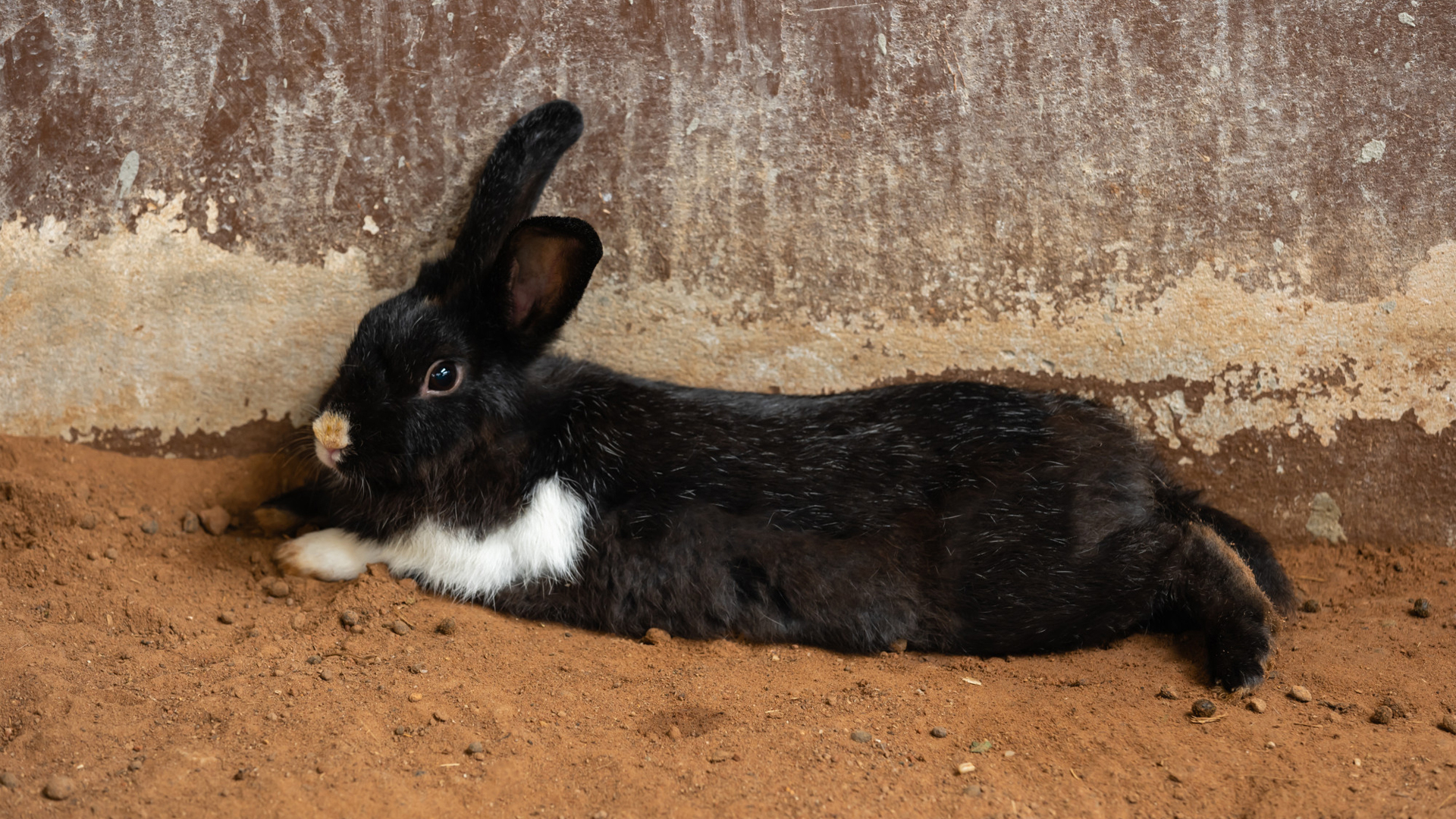People can go a whole day without eating and recover later, right? But rabbits aren’t so lucky. Rabbits have sensitive digestive systems and, thus, can’t live without food for too long!
Keep reading to find out how long rabbits can go without food or water and what causes them to do so.
Understanding Rabbit Feeding Needs
If you’ve ever watched a rabbit, you’ll notice they’re almost always grazing son something. They naturally need to chew and eat throughout the day.
Their diet mainly consists of hay or grass, which is crucial for their digestive system and helps wear down their teeth. Alongside hay, leafy greens provide essential nutrients to their diet. Favorites include romaine lettuce, kale, parsley, and spinach.
Rabbits also eat specially formulated rabbit pellets. When choosing pellets, look for high-fiber options and avoid those with added sugars or seeds.
How Long Can a Rabbit Go Without Eating?
As discussed earlier, rabbits need food to chew on 24/7 and shouldn’t be left without food and water for long. However, in cases of emergency, a rabbit can go 12 hours without eating.
This situation can be life-threatening for your rabbit, as it can lead to serious health issues such as gut stasis and organ failure.
What Can You Do When Your Rabbit Stops Eating?
Once the rabbit stops eating, they become prone to gastrointestinal stasis and other health problems even after they start eating normally.
Though a rabbit can technically survive for a day without food, this may be concerning, and your rabbit might not live longer.
Step No.1: Examine Their Environment
Loss of appetite in rabbits may have occurred due to an unclean, dirty habitat.
Step No.2: Offer Fresh Greens

Leaving your rabbit with high-quality pellets, vegetables, hay, and grass might stimulate their interest.
Step No.3: Check Water Supply
Ensure they have access to clean, fresh water. Place a water bowl and a water bottle near their habitat.
Step No.4: Monitor Their Feces
Keep an eye on their droppings. A decrease in fecal output can indicate a severe issue.
Step No.5: Consider Stress Factors
Rabbits should always be kept in a calm, noise-free space. Changes in routine can also impact their eating habits.
Step No.6: Use a Feeding Syringe
You can offer fresh food and water through a syringe to temporarily provide nutrients. This may earn them the strength to eat on their own.
When Do Rabbits Need a Vet?
Generally, rabbits go without food for a day long before serious issues arise. If they stop eating for over 10 hours, take them to the vet immediately.
Left untreated, gastrointestinal tract problems can lead to gut stasis. Gut stasis occurs when a rabbit’s digestive system movements slow down or completely stops. So, know the signs early on and get them checked before it’s too late.
Signs Your Rabbit Might Be Sick & Has Lost It’s Appetite

When your rabbit changes its eating habits, it’s a clear signal that something might be off. Paying attention to their behavior and physical condition can help you catch health issues early. Here’s what to look out for:
Changes in Bathroom Habits: If you notice fewer droppings or if they look unusual, this could indicate a digestive problem. Healthy rabbit poop should be plentiful, round, and dry.
Less Playful or Active: A bunny that’s usually full of energy but suddenly seems tired or less interested in playtime may not be feeling well. Rabbits are naturally curious and active, so a change in this behavior is notable.
Reluctance to Drink Water: Hydration is crucial for rabbits. If your furry friend is drinking less than usual, it could be a sign of sickness. Make sure clean water is always available.
Desire for Solitude: If your once sociable pet rabbit now prefers to be alone, they might be trying to hide that they’re unwell. In the wild, rabbits often hide their illnesses, so this behavior can be instinctual.
Teeth Grinding: When rabbits grind their teeth loudly, it’s often a reaction to pain. If you hear this, it’s essential to consult with a vet immediately.
Tips To Keep Your Rabbit Healthy
Knowing how long rabbits can go without water and food is essential, but how are you supposed to keep them happy and healthy? Here’s what you can do:
Unlike other pets, rabbits need a constant supply of food intake. If not, this can lead to bloating. Thus, hay should make up at least 85% of the rabbit’s diet.
Rabbit owners should invest in toys that keep the rabbit active.
Make sure they are drinking enough water throughout the day.
Know your rabbit requires an open space to live and play comfortably.
Ensure your rabbit is happy by taking them for regular checkups.
Frequently Asked Questions
Here are some vet answers to your frequently asked questions!
Q: What Should I Do If My Rabbit Isn’t Eating or Drinking?
A: If you notice that your rabbit isn’t eating or drinking, it is crucial to get it to a vet as soon as possible. Delays can lead to severe health complications.
Q: How Can I Encourage My Rabbit To Eat More Hay?
A: To encourage your rabbit to eat more hay, ensure it is fresh, high-quality, and freely available. You can also offer different types of hay to see which one your rabbit prefers.
Q: How Long Can Rabbits Go Without Food Before It Becomes Critical?
A: Generally, it can become critical if rabbits have gone for more than 12 hours without food. If your rabbit hasn’t eaten for more than 24 hours, consult a veterinarian immediately.
Q: What Can Cause a Rabbit Not To Eat?
A: Various factors can cause a rabbit not to eat and drink, including dental problems, gastrointestinal issues, stress, or illness. If your bunny’s appetite has decreased, it’s essential to observe any other symptoms and consult a vet.
So, Now You Know How Long Rabbits Can Go Without Food and Water
So, if your rabbit doesn’t eat for a while, it can be pretty scary especially when in an emergency and there’s no food around.
Not eating can put your rabbit at risk of some serious health issues. Sometimes, not eating hay might be causing the problem. So, keep an eye on your fluffy friend!


